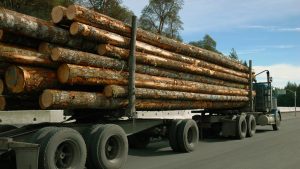The Ontario Road Builders’ Association (ORBA) is calling for sustained or more funding for transit and transportation infrastructure projects like the proposed Highway 413 and Bradford Bypass.
The request is one of five key priorities outlined in a comprehensive four-page transportation plan, called Keep Ontario Moving, produced by the association in advance of the provincial election.
“Infrastructure such as Highway 413 and the Bradford Bypass needs to be built as part of a multi-modal strategy to keep Ontario moving,” says ORBA chief executive officer Bryan Hocking. “Congestion costs us all. Time spent in traffic keeps us away from spending time with family and friends and costs Ontario’s economy $11 billion in lost productivity in the GTA alone.”
ORBA maintains investing in infrastructure such as highways and transit pays economic dividends and creates thousands of jobs. The Centre for Spatial Economics estimates every dollar invested in infrastructure generates an increase of up to $6 in GDP over the long-term and 44 cents of every dollar invested is recovered in additional tax revenue.
The four other priorities outlined by the association are reducing risk and creating value for Ontarians, addressing the shortage of heavy civil construction labour, sustainable transportation infrastructure projects, and enhancing safety for road users.
To reduce risk and create value, ORBA is calling for the creation of a price index for key construction materials on all public contracts and for the government to work with industry to bring further clarity to essential project material specifications.
“Currently, Ontario does not have a mechanism to deal with the hyperinflation of construction materials such as steel, lumber and ready-mixed concrete,” says Hocking.
“Price uncertainty for these important construction materials and specifications such as asphalt increases risk for both contractors and public owners and creates unnecessary volatility in the procurement process. More price certainty creates the best possible value for Ontario’s infrastructure dollars.”
Furthermore, ORBA wants a mechanism on all provincial contracts that provides coverage and compensation for pandemic-related impacts. As a designated essential service, the association notes the industry has worked tirelessly to deliver important transportation infrastructure projects, while keeping the workforce safe.
“Compensation has been provided for additional personal protective equipment, however, the upfront costs of many other safety measures that affected productivity have not been recovered,” ORBA states in its plan.
To address the labour shortage, the association is recommending the provincial government work with its federal partners on a more robust immigration strategy to attract more heavy civil construction workers to Ontario.
“Recent projections indicate that we will require tens of thousands of new workers in the industry, including general labour and apprenticeship and non-apprenticeship trades over the next decade,” says Hocking.
By 2027, Ontario will need an additional 71,800 workers to meet its infrastructure demands. Thirteen per cent of the current labour force will retire by then. As of 2018, immigrants accounted for 27 per cent of Ontario’s construction workforce.
Statistics show the heavy and civil sector has been less successful in attracting and retaining younger workers due to the competitive disadvantage with other career-oriented apprenticeship trades.
ORBA states current provincial and federal programs, such as the Ontario Immigrant Nominee Program (OINP) and the federal Express Entry programs are unable to deal with the labour shortage, and an immigration strategy that recognizes the unique workforce requirements of the transportation infrastructure industry is a crucial step to keeping up with the growing needs of Ontario.
ORBA also wants more provincial government promotion and recognition of the non-apprenticeship skilled trades.
The building of essential transportation infrastructure requires a multi-skilled workforce with many essential non-apprenticeship-type jobs and mentoring opportunities that remain unfilled, states the plan, and it is imperative that government work with industry to promote these opportunities and challenge the perceived stigma around careers in construction.
Meanwhile, ORBA is asking the province to promote the responsible reuse of non-renewable construction materials on more transportation infrastructure projects.
“Our industry has demonstrated a clear commitment to a circular economy through the use of recycled construction materials such as recycled asphalt pavement and aggregate. Together with governments, we can do more,” says Hocking. “As proud Ontarians and responsible industry leaders, we want to continue to deliver the highest quality projects in the most sustainable way.”
To enhance safety for all road users, ORBA is also requesting a provision that would prohibit drivers from overtaking snowplows working on provincial highways.
“When a collision involves a snowplow, it doesn’t just affect the drivers and vehicles involved, it interrupts the vital safety function that the snowplow was providing and potentially makes driving in winter conditions more dangerous,” notes Hocking.
It can also interrupt the flow of traffic and trade on major arteries in the province, according to ORBA.
“A provision under the Highway Traffic Act is needed to guard against these dangerous incidents, keeping traffic and trade moving and enhancing the safety of the travelling public,” says Hocking.











Recent Comments
comments for this post are closed